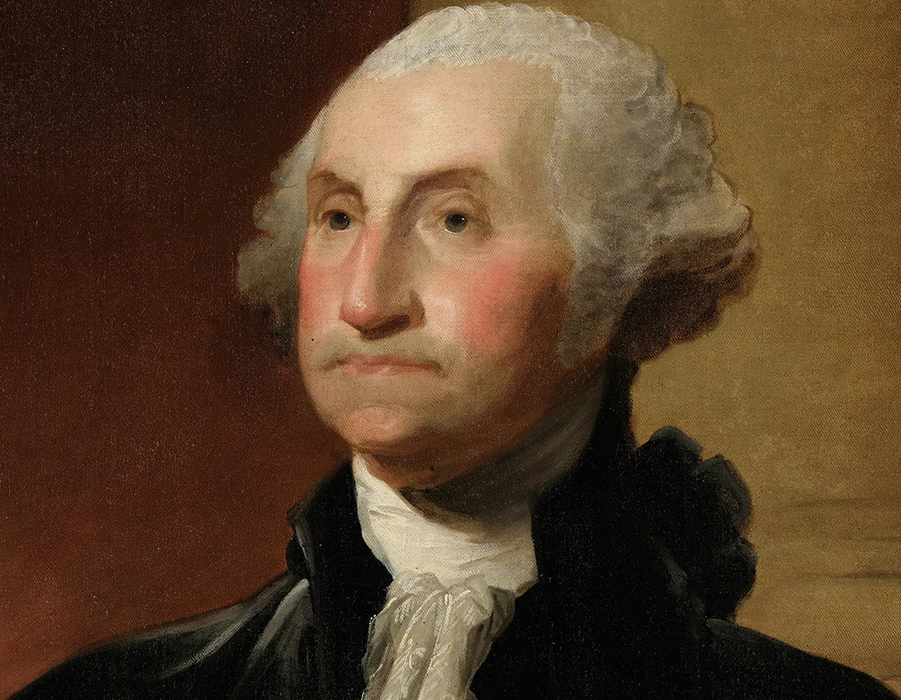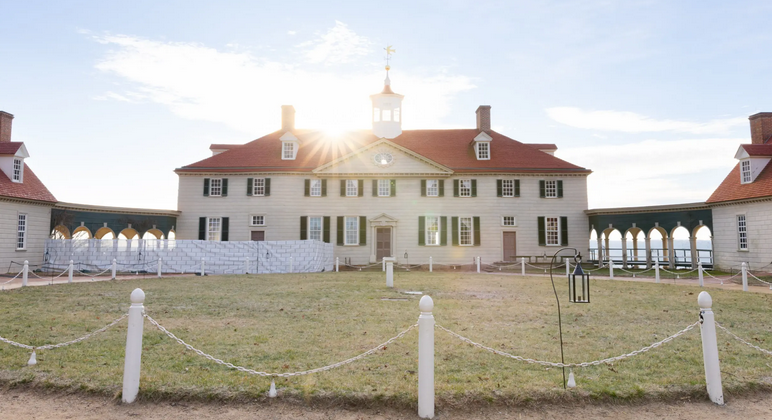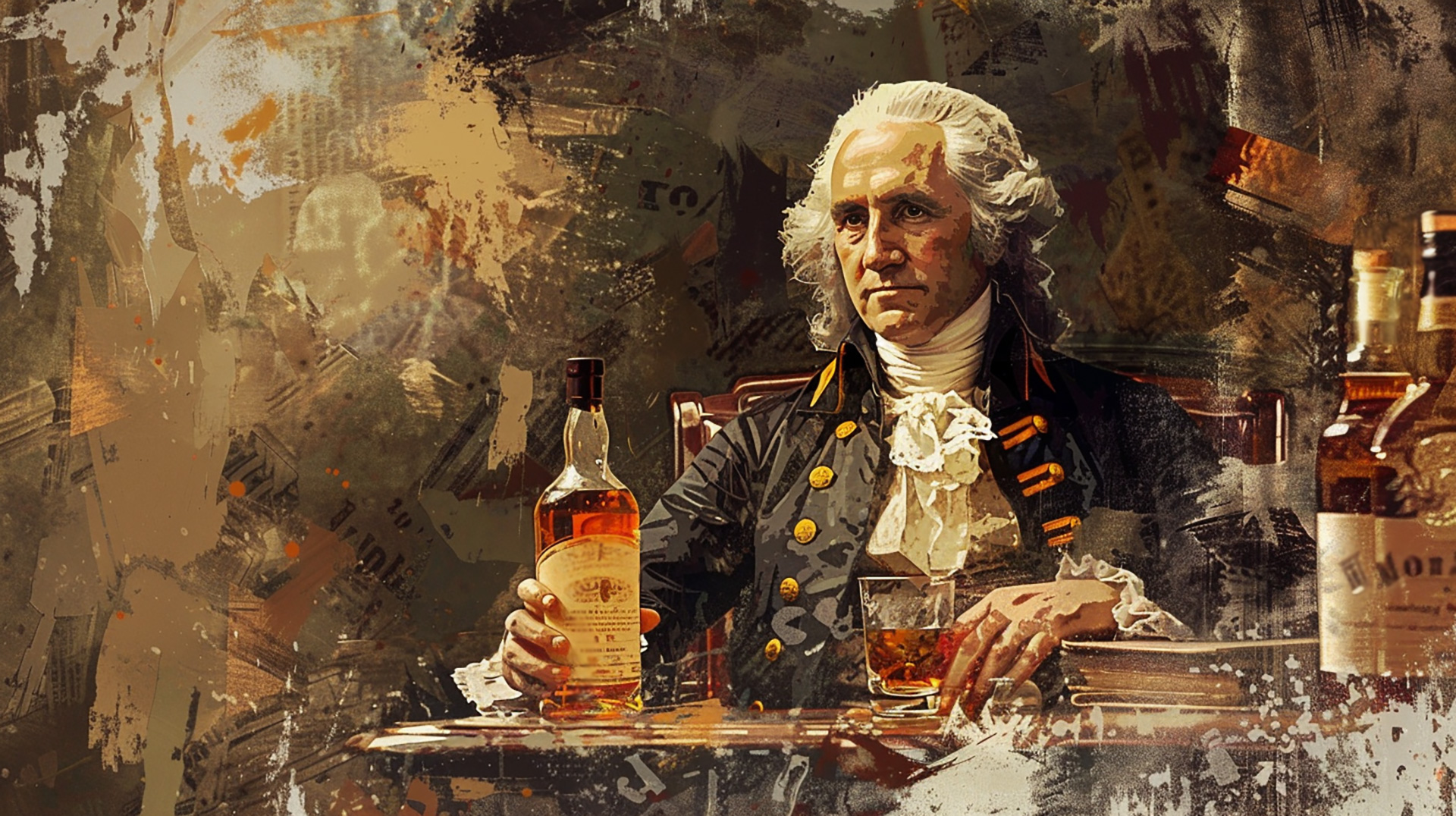We observe the birthday of George Washington on Presidents Day in February. You remember George; that cherry-tree-cutting, wooden-toothed army general who was our nation’s first constitutionally-elected president. Yeah that guy. If you don’t know who he was, his image remains in the U.S. dollar bill and the front of the quarter coin. To simply say that he did a lot of good for the young nation of America, would be a colossal understatement.
In the matters of whiskey it is easy for us in the 21st Century to overlook how influential Washington was to the establishment of distilling spirits in the early years of our nation. Today, the official spirit of the Commonwealth of Virginia is George Washington’s rye whiskey. Why should it be any other product? No other President of the era championed liquor production as did Washington. But how can Virginia have an “official spirit” that has not been bottled since 1814? Let me explain.

In 1777, the supply of everyday necessities was quite limited; everything was expensive and in short supply. Many of these goods were strictly reliant upon importation and could only be had in small quantities at very high prices. George Washington was quite concerned about this situation and the merchants who were price gouging as it had the effect of impoverishing both the government and the people alike. As an army general he saw how much more the government had to pay for these goods in order to keep the Continental Army fed, clothed, housed, and equipped. He desperately wanted our nation to quickly develop domestic production of supplies in every category of staples, not only liquor.
However, when the subject turned to liquor, Washington was an early proponent of establishing government owned and operated distilleries, along with several other key trades, in order to increase the domestic supply and force competition which would force lower prices. This premise is economics 101. He also knew how important it was for the Continental Army and the private citizens to have a constant supply of liquor. He expressed this need in a letter to John Hancock on August 16th, 1777:
“…In like manner, since our Imports of Spirit have become so precarious—nay impracticable on account of the Enemy’s Fleet, which infests our Whole Coast, I would beg leave to suggest the propriety of erecting public Distilleries in different States. The benefits arising from the moderate use of strong Liquor have been experienced in All Armies, and are not to be disputed. In the present situation of Affairs, Our Soldiery cannot obtain such Supplies, as are absolutely necessary, and if they are fortunate enough to get any, it is from the Sutlers at most extravagant rates, & at such, as are incredible to tell of. This is a source of much Complaint, and, I should hope, may be removed by appointing proper persons to buy Grain & distill it for the Army, large Quantities of which may be easily procured & on reasonable terms in many of the States.”
Compared to importation, this plan was an early example of a kind of hybrid vertical integration where domestic farmers, perhaps under contract, would produce the grain, local breweries supply the yeast (at least initially) and the various states operate distilleries to produce the finished product, primarily to supply the nation’s armed forces. Surely, under such a fledgling operation if the farmers had needed assistance in producing the needed grain, Washington would have offered a plan to make that happen, too.
Long after the war and after his presidency, Washington was finally able to live at his estate at Mt. Vernon. In 1797 James Anderson, a Scot, was managing the business of Washington’s farm and persuaded him to consider planting rye so that along with his corn, a whiskey could be produced from both the rye and corn grown locally on the farm. They were already operating a grist mill at Mt. Vernon, and from Anderson’s perspective, opening a distillery there was a natural expansion which would profit the operation. Washington eventually approved of the plan and soon built one of the largest distilleries in the nation at the time, a 2,250 square foot facility.

Washington later writes his nephew, Col. William Augustine Washington, with regards to some details about his distillery at Mt. Vernon on 27 February 1798:
“I make use of no Barley in my Distillery (the operations of which are just commenced). Rye chiefly, & Indian Corn in a certain proportion, compose the materials from which the Whiskey is made. The former I buy at 4/6, for the latter I have not given more than 17/6, and latterly 17/ delivered at the Distillery—It has sold in Alexandria (in small quantities from the Waggons) at 16/ & 16/6 pr Barrl, but at what it goes now I am unable to inform you. So large a quantity as you have for sale may command a good price.”
The distillery was a success. We also know that by 1799, George Washington’s Mt. Vernon distillery had produced around 11,000 gallons of whiskey, valued at about $7,500 which was a significant sum of money at the time, equivalent to around $120,000 today. He had even asked his nephew to assist in securing grain for the distillery.
Letter From George Washington to William Augustine Washington, 29 October 1799
Mount Vernon Octr 29th 1799
My dear Sir,
Your letter of the 8th instant has been duly received, and this letter will be handed to you by Mr Lawe Lewis, to whom I have rented my Mill & Distillery, and who comes into your parts to see if he can procure (on reasonable terms) grain with which to keep them employed. Your advice and aid in enabling him to obtain these would be serviceable to him, & obliging to me. Mr Lewis is a cautious man, and I persuade myself will scrupulously fulfill any Contracts he may enter into. You will be perfectly safe, I conceive, in declaring this.
Two hundred gallons of Whiskey will be ready this day for your call, and the sooner it is taken the better, as the demand for this article (in these parts) is brisk. The Rye may be sent when it suits your convenience—letting me know, in the meantime, the quantity I may rely on, that my purchase of this grain may be regulated thereby.
Mrs Washington has got tolerably well again, and unites with me in every good wish for you and yours. With very great esteem and friendship I remain Your Affectionate Uncle”
Unfortunately Washington’s distillery closed after a devastating fire in 1814. This, however, was not to be the last chapter for the Mt. Vernon Distillery. George Washington’s Distillery at Historic Mount Vernon (Alexandria, VA) has been rebuilt and restored into an operating facility that is producing a variety of distilled rye whiskey and wines. “Archaeological and historical research was conducted on the property in 1997. The site of the Distillery was excavated by Mount Vernon’s archaeologists between 1999 and 2006. The reconstruction began in 2005 and was completed in 2007.
How did they determine what the original mash bill and process was for Washington’s whiskey? “The original recipe for Washington’s whiskey was discovered by researchers examining the Distillery ledgers from 1798 and 1799. His whiskey consisted of 60% rye, 35% corn, and 5% malted barley. The records also indicate that George Washington’s whiskey was distilled at least twice before being sent to market.” It is interesting to note that Washington himself wrote his nephew in 1798 saying, “I make use of no Barley in my Distillery…” when we also have the written production records showing that the distillery did in fact use barley. We can only speculate as to why this was. Perhaps his farm manager, James Anderson went rogue and used barley without knowledge or consent. We may never know the answer and perhaps this will remain one of America’s least important mysteries.
The three expressions offered by Mt. Vernon distillery are all bottled in 375 ml with 43% ABV, 86 proof. They include a Rye Whiskey, a Straight Rye Whiskey, and a Straight Rye Premium Whiskey. I was unable to sample these products in time for the article, but these expressions can be ordered (if you’re over 21) online at https://whiskey.mountvernon.org.
George Washington, General, President, and gentleman farmer, not only encouraged the early Americans to be ambitious to produce the goods needed by the nation, but he also worked to put into practice those ideas himself. He was never content to simply tell others how to do; he put his own advice into action to support his fellow Americans and the nation at large. On Presidents Day we can raise a glass of our favorite rye to the man who was the Father of our country!
For more information on the Mt. Vernon Distillery, www.mountvernon.org/distillery and https://whiskey.mountvernon.org/




